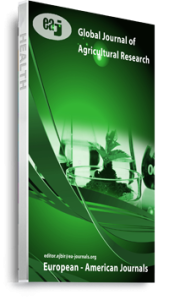As sustainable agriculture gains momentum, nano-biofertilizers have emerged as a promising alternative to chemical fertilizers. These formulations combine beneficial microbes with nanotechnology to boost nutrient availability, improve plant nutrient uptake, and enhance soil health. This review examines their composition, mechanisms, and agricultural benefits. Nano-biofertilizers improve nutrient use efficiency, support plant growth, and help suppress soil-borne pathogens through the synergistic effects of microbes and nanoscale carriers. They also reduce nutrient losses via leaching and volatilization, lowering environmental pollution and greenhouse gas emissions. Furthermore, they promote microbial diversity and improve soil structure—key factors in soil fertility. Despite their advantages, challenges such as production costs, regulatory gaps, and limited field data hinder widespread use. Addressing these issues through coordinated research and supportive policies is essential. Ultimately, nano-biofertilizers represent a sustainable tool to enhance crop productivity and environmental health, with great potential for integration into organic and eco-friendly farming systems.
Keywords: Nanotechnology, Sustainability, nano-biofertilizers, nanoparticles, rhizobacteria

